Jan 28, 2021|
In-depth Report: The Intelligent Facets of JD Health
by Yuchuan Wang
COVID-19 has stimulated widespread use of advanced technologies in the healthcare industry. Doctors are treating patients through the internet and monitoring their blood pressure remotely by implementing IoT-supported monitors. Robots are being applied in Chinese hospitals to transport medicine to contaminated zones.
According a report by leading U.S. research and consulting firm Frost & Sullivan, the expenditure proportion in the area of digitalization of the Chinese health and wellness market is expected to increase to 10.6% and 24.0% in 2024 and 2030 respectively, from 3.3% in 2019.
JD’s in-door delivery robot works in a hospital in Shanghai to deliver medicine for COVID-19 patients
Harnessing technology and supply chain advantages, internet healthcare companies like JD Health, China’s leading telemedicine company, affiliated with JD.com, are reinventing and digitalizing the industry for all participants in the health supply chain.
The pharmaceutical supply chain base
China is building a graded diagnosis and treatment system in which medical resources including medicines are encouraged to be distributed through multiple channels. This effort provides fertile soil for the development of telemedicine.
Made possible by its self-built pharmaceutical supply chain, JD Health has developed a closed-loop solution of “seeking medical service + medicine purchase” for patients in China.
Chinese consumers can consult with over 110,000 doctors through JD Health’s platform and purchase the recommended medicine with a click of a button, and have it delivered to their doorsteps. With 11 pharmaceutical warehouses across China, JD can deliver 80% of pharmaceutical orders in 24 hours.
JD has also made efforts to advance the distribution of medicine offline.
Physical pharmacies have faced problems such as lack of bargaining power, paying higher operating and procurement costs at a smaller scale, and having limited market insights. And this is where JD Medicine Procurement comes in.
JD Medicine Procurement (yao.jd.com) is a B2B pharmaceuticals wholesale trading platform which creates an effective digital channel to connect upstream pharmaceutical suppliers and retail drug stores.
“Clients on the platform are mainly one-unit pharmacies, small and medium sized drug stores and clinics under unprecedented pressure in the market competing with larger enterprises,” said Xinyuan Zhou, head of JD Pharmaceutical Procurement and general manager of Channel Innovation at JD Health. “Nearly half of the pharmacies selling on JD are from third and fourth or lower-tier markets.”
JD Medicine Procurement app
Similar to a consumer-facing e-commerce site, marketing campaigns such as flash sales, lucky draws and livestreams are common on the JD Medicine Procurement platform. During a livestream with Venturepharma last July, the pharma sold nearly RMB 2 million yuan in just one hour.
As of the end of 2020, there have been more than 220,000 clients on JD Medicine Procurement, placing a total of over a million orders every month. On Singles Day (Nov.11, 2020), sales of the platform were almost three times that of the same day last year.
“The digital supply chain not only improves of circulation efficiency and the expansion of service scenarios for the healthcare industry, but also further strengthens the relationship between the industry and consumers for rapid growth,” said Zhou.
Customized solutions for patients and doctors
JD Health also connect its services with IoT devices and provides a smart health management experience.
Most recently, JD Health released the smart speaker “Family Doctor Guardian Star”. It connects the telemedicine service program “Family Doctor” to the smart device so that customers can use voice commands to call Internet hospital doctors and make face-to-face appointments.
At the CNBC East Tech West conference held in Guangzhou last November, Lijun Xin, CEO of JD Health mentioned another example: When a patient was using an Omron blood pressure meter during exercise, his blood pressure registered as abnormal.
“The patient didn’t know it, but our doctor knew and called him. That’s because the data was immediately transferred from the meter to his doctor through IoT,” said Xin.
Lijun Xin (left), CEO of JD Health and Evelyn Cheng (right), CNBC Beijing correspondent
Advanced technologies such as IoT and 5G are already changing the healthcare industry, from health monitoring to disease prevention, to diagnosis, surgery, and daily health management. AI and big data are also contributing to the healthy development of the industry, thanks to JD.
The AI-based prescription review and analysis system “PharmCOO” (pharma chief operating officer) is already being applied in hospitals in Beijing, Hebi, Beihai and other cities. Based on the vast database of pharmaceutical knowledge from the Third Hospital of Peking University, the system can optimize the clinical prescription procedure, thus ensure the safety of patients. Most recently, Haidian district in Beijing announced to build an AI prescription review center with the help of JD Health in November, the center is expected to be Beijing’s first pharmaceutical service platform powered by internet technology.
Lijun Xin, CEO of JD Health (left) and Jintao Li, director of Haidian Health Commission (right) signs agreement in November 2020
“One of the most important functions of PharmCOO is that it can review a doctors’ prescription before it goes to the pharmacist, and provide assistance for both doctors and pharmacists, making sure there are no contradictions between medication, and correct dosage,” said Dongyuan Wang, general manager of intelligent medical services at JD Health.
“It also has great application value for the improvement of the national health insurance system, for example, by advising the right dosage.”
The income of hospitals in China previously mainly came from drug sales. Driven by financial self-interest, doctors may diagnose as many conditions as possible and over-prescribe. Since 2009, “separation of prescribing and dispensing” has been one of the core tenets of China’s healthcare reformation.
“With PharmCOO, prescriptions will be able to be directed to external pharmacies, be connected with social couriers and delivered to patients’ doorsteps, or circulated to pick-up lockers or community compounds, energizing the retail market and providing convenience for patients,” said Wang.
Smart solutions for hospitals
JD Health has also already made it possible to duplicate the “internet + medical treatment” model for offline hospitals, using technologies including cloud computing, AI, IoT and its supply chain ability.
By helping hospitals build a system that integrates medical services and data, JD Health makes it possible for a series of clinic functions such as registration, consultation and prescription and drug purchase to all be done online.
Last December, Nankai-JD Internet Hospital was launched, in collaboration with the AAA hospital Tianjin Nankai Hospital (also known as Tianjin Hospital of Integrated Traditional Chinese and Western Medicine). Patients can enjoy services including revisit and prescription online, and online payment via health insurance. JD’s logistics advantage also enables home delivery of medicines within half of a day.
Patients can also enjoy additional services, such as making an appointment for a health examination, Traditional Chinese Medicine and home service.
Nankai-JD Internet Hospital app
“We also analyze research data and match the analysis with clinics, thus guiding the upgrade of clinic skills,” said Hongtao Xing from JD Health’s intelligent medical services team.
In Beihai, JD Health will build an electronic health information platform, a health big data center, an electronic health card platform and six applications, including: smart hospitals, smart medical treatment combination, medical supply chain, a smart doctor project, a family doctor project and a public health project.
“For example, by building the electronic health card platform, we hope to get electronic medical record (EMR) and health record combined,” said Xing. “The platform will also break the long existing walls among hospitals, to bring isolated data together for a more digitalized medical system.”
In addition, as early as 2019, JD extended its AI powered customer service to hospitals, and launched the medical care customer service via West China 2nd Hospital (affiliated to Sichuan University) WeChat public account. AI algorithms automatically triage patients based on their descriptions and respond to frequent and repetitive queries, such as how to get a number to line up, which department of the hospital to go to, the doctor’s schedule, and more.
JD Health is making continuous efforts to promote the further use of cutting-edge technologies to innovative the development of the healthcare industry, and to provide more easy-to-access, convenient, high-quality and affordable medical and health products and services.

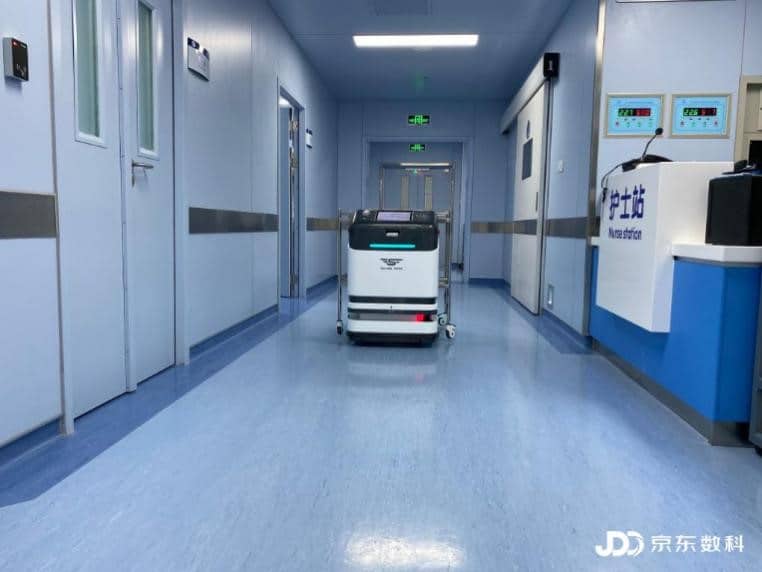
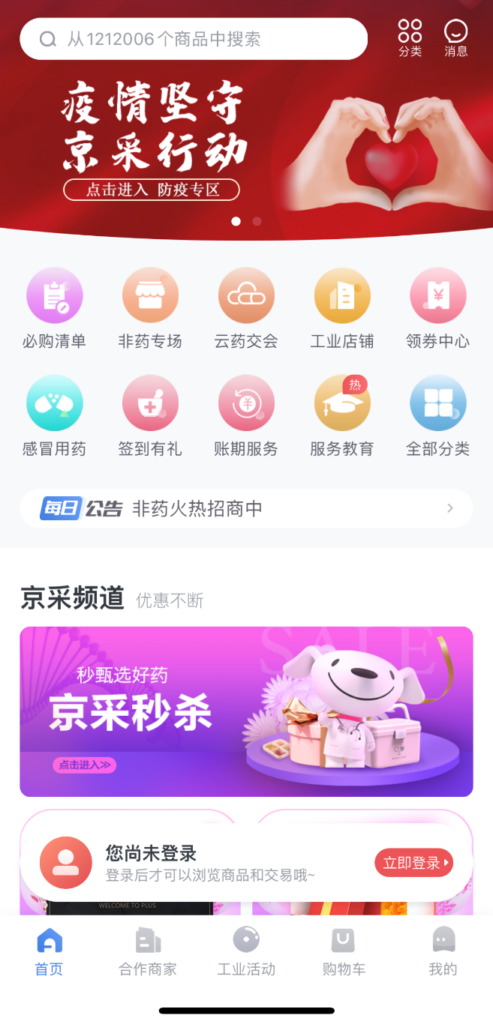
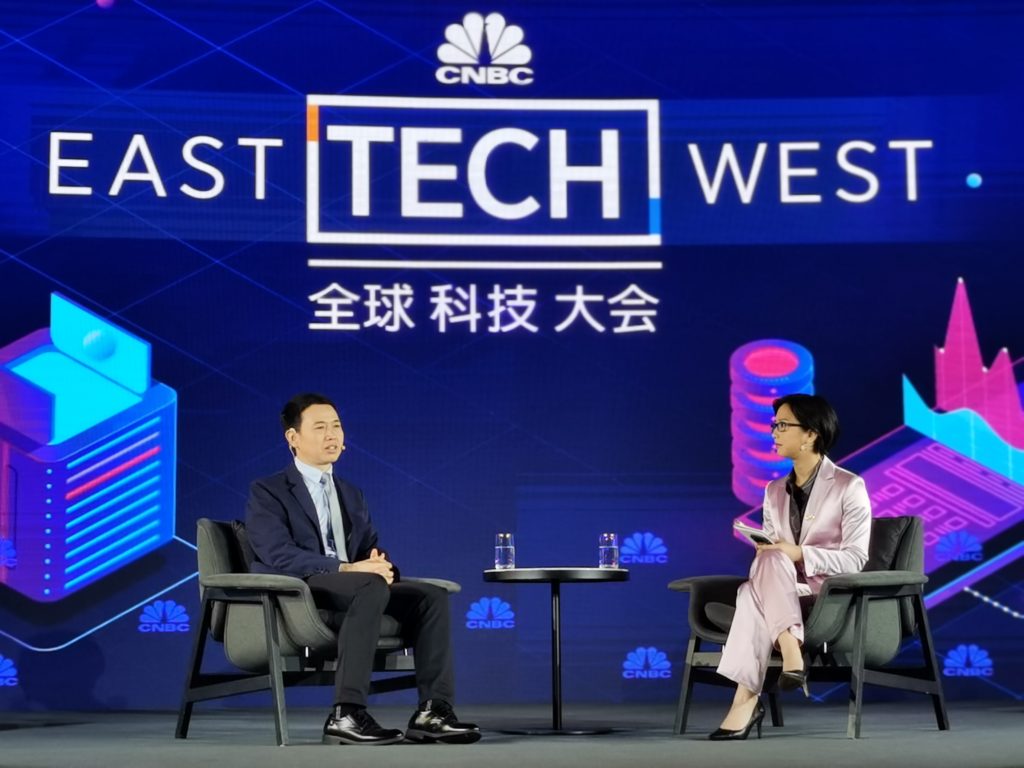

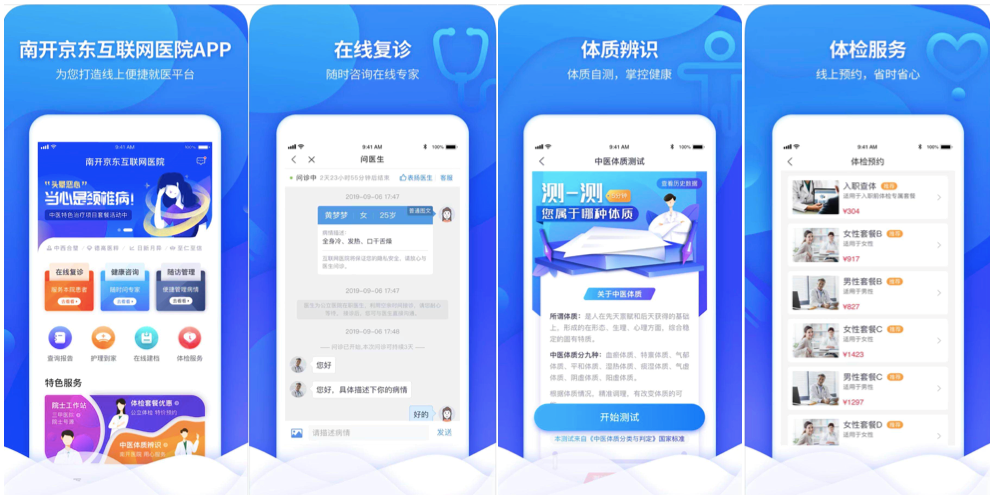




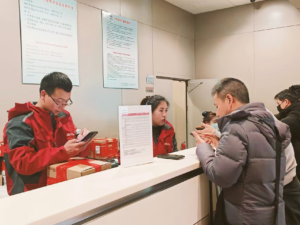 This Harbin tourism boom has also spurred a surge in sales of winter apparel. JD.com’s data indicates a rapid growth in the sales of warm clothing items such as down jackets, snow boots, and thermal underwear between January 1st and 7th. The sales growth is especially pronounced in southern provinces and cities such as Jiangsu, Zhejiang, Guangdong, Sichuan, and Shanghai. Notably, tall snow boots registered a 206% year-on-year increase in transactions, while padded cotton caps and thickened long down jackets soared by 158% and 134%, respectively. Beyond clothing, travel gear has also seen a considerable uptick, with a 98% year-on-year growth in transactions for large suitcases and travel backpacks in these southern regions.
This Harbin tourism boom has also spurred a surge in sales of winter apparel. JD.com’s data indicates a rapid growth in the sales of warm clothing items such as down jackets, snow boots, and thermal underwear between January 1st and 7th. The sales growth is especially pronounced in southern provinces and cities such as Jiangsu, Zhejiang, Guangdong, Sichuan, and Shanghai. Notably, tall snow boots registered a 206% year-on-year increase in transactions, while padded cotton caps and thickened long down jackets soared by 158% and 134%, respectively. Beyond clothing, travel gear has also seen a considerable uptick, with a 98% year-on-year growth in transactions for large suitcases and travel backpacks in these southern regions. PG Mall Joins JD Worldwide to Bring Malaysian Products to China
PG Mall Joins JD Worldwide to Bring Malaysian Products to China



